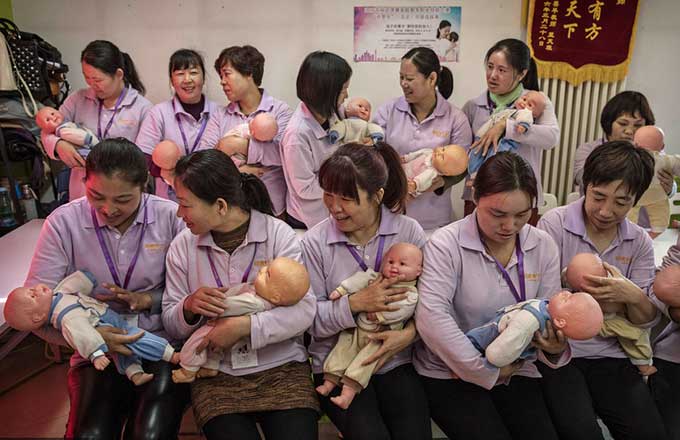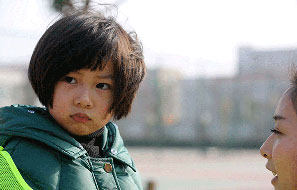Offering seniors a helping hand at home
 |
|
Volunteers paint portraits of residents at a nursing home in Liaocheng, Shandong province. [Photo by Zhao Yuguo/For China Daily] |
Income gap
Although there are about 40 million care-dependent and partially care-dependent seniors in China, there are fewer than 300,000 qualified caregivers, Zou Ming, deputy minister of the Ministry of Civil Affairs, told Xinhua News Agency. "We currently have a shortfall of at least 10 million caregivers for seniors," he said.
According to insiders, the meager salary is a major stumbling block that dis-courages people from joining the sector.
"Only when caregivers receive higher wages will more young people with better educational backgrounds participate in the industry, and thus fight against common misconceptions about their role," said Fang Shiting, a professor of nursing at Ningbo College of Health Sciences in Zhejiang province.
"In addition, the work requires constant physical strength, patience and compassion. That's not always easy to master," she said.
Fang said that people in China still equate caregivers for seniors with regular nannies; a fact that is reflected directly in how much they are willing to pay for their services.
"We pay our employees around 5,500 yuan a month, but the market price for a maternity matron is double that figure," said Xiaobo's Zhao.
According to Du Peng, director of the Institute of Gerontology at Renmin University of China in Beijing, the development of an insurance system for long-term care would be one way of boosting caregivers' incomes and making the service widely affordable.
"Individuals could pay a certain amount of money into an account every month from the age of 30 or so, and then they will be able to purchase homecare services in later life. It would be similar to the pension system because the country might also need to put money into individual accounts," he said.
In 2014, Du's team polled more than 11,000 senior residents in both urban and rural regions across 28 provinces. The results showed that the main priority for city-dwelling seniors was finding some-one to do housework, while those in the rural areas felt that home visits were par-amount.
"It showed that seniors, especially the poor and disabled, in the rural regions are those who need homecare services the most, "Du said.
"Roughly 57 percent of elderly Chinese live in rural areas. They have less money to spend, but they shouldn't be excluded fromthese services, which are an attempt to further boost social welfare," he added.

























